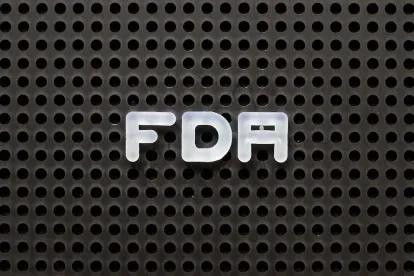On April 16, 2021, the Food and Drug Administration (FDA) published twin notices in the Federal Register effectively reversing a move by the Trump administration Department of Health and Human Services (HHS) on January 15, 2021 purporting to exempt 91 medical device types from the premarket notification requirement under Section 510(k) of the Federal Food, Drug, and Cosmetic Act. HHS’s actions on January 15, signed by then-HHS Secretary Alex Azar, sought to make permanent FDA’s grant of temporary enforcement discretion for the 91 device types for the duration of the COVID-19 public health emergency. However, HHS’s action was highly irregular given that the review and determination did not involve the FDA, the agency with the appropriate knowledge and expertise to determine that premarket notification is no longer necessary to assure safety and effectiveness of those device types. The first notice issued by FDA to undo the previous HHS actions “in the interest of public health” reverses the HHS exemption of seven reserved Class I devices—six types of patient examination gloves and one type of surgical glove—which became immediately effective as of the publication on January 15, 2021, and the second notice removes 83 class II devices and one unclassified device from consideration for 510(k) exemptions.
In both April 16 notices (which are signed by both Acting FDA Commissioner Janet Woodcock and current HHS Secretary Xavier Becerra), FDA states that HHS did not consult with or even notify FDA about the earlier premarket notification exemptions for the 91 device types and that the exemption determinations were based solely on the number of adverse events reported for such device types in FDA’s Manufacturer and User Facility Device Experience (MAUDE) database. In countering HHS’s dependence on MAUDE, FDA states:
Although adverse event reports are a valuable source of information, the reports have limitations…including the potential submission of incomplete, inaccurate, untimely, unverified, or biased data. In addition, the incidence or prevalence of an event cannot be determined from adverse event reports alone, due to underreporting of events, inaccuracies in reports, lack of verification that the device caused the reported event, and lack of information about frequency of device use. As noted by several commenters, reliance on adverse event reports in MAUDE is an inappropriate basis for exemption because, for example, adverse events may be underreported for certain devices, and a low number of reports in MAUDE may reflect the low number of marketed devices, and not necessarily the risk of injury. In addition, relying exclusively on MAUDE data leaves out other important information regarding risk. For example, FDA routinely considers recall information as part of its risk analyses, including for class II 510(k) exemptions….Not only is adverse event data inadequate on its own for assessing safety, it may provide little or no information about effectiveness, for purposes of proposing exemptions.
The FDA goes on to declare that its action to reverse the proposed exemptions is warranted because HHS’s original determinations lacked adequate scientific support, contained multiple errors, and were ultimately flawed.
One of the more interesting aspects to this saga is the reaction from affected stakeholders in the medical device industry. Companies that manufacture medical devices subject to HHS’s January 2021 exemption proposal submitted critical comments to the docket that questioned whether permanently exempting the proposed device types from premarket notification requirement is in the best interest of patients. Many commenters also pointed out that while they support FDA’s reexamination of the risks associated with medical devices and the regulations that apply to each device type, any decision to exempt devices based solely on adverse event reports in MAUDE is superficial and incomplete. Some commenters, like the Medical Imaging and Technology Alliance (MITA), defended the 510(k) process as beneficial, stating:
The 510(k) substantial equivalence pathway is a cornerstone of efficiently bringing safe and effective medical devices to market.… The predicate substantial equivalence comparison methodology has enabled innovators to iterate products and build on well-established science. Medical device technologies have matured and thrived under this pre-market review paradigm.
Ultimately, FDA agreed with the concerned industry stakeholders and reversed HHS’s action, demonstrating that FDA and the industry are often aligned on issues relating to device safety. This recent “corrective action” by FDA should also provide new comfort to stakeholders and consumers alike that any politically driven public health decision-making that may have been taking place during the previous administration is a thing of the past, and that both HHS and FDA are signaling to the public that robust data and science will lead regulatory decision-making at the agency going forward.




 />i
/>i
